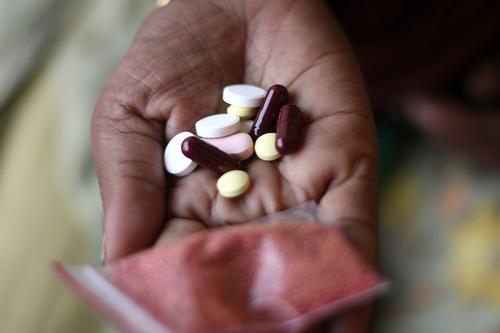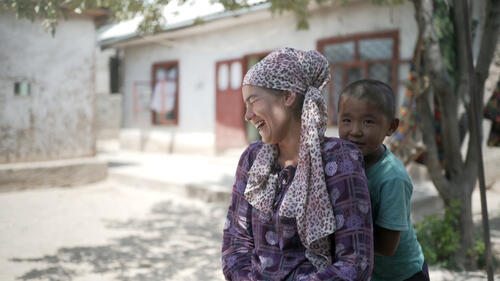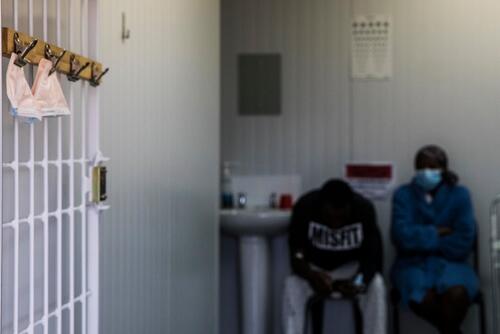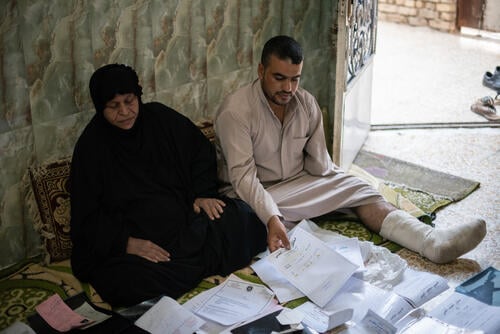BOSTON/PARIS — Hundreds of patient volunteers from four continents have enrolled in a trial that aims to find safer, shorter, and effective treatments for multidrug-resistant tuberculosis (MDR-TB), an airborne, infectious disease that has grown resistant to standard medications. A group of scientists and clinicians led by Médecins Sans Frontières (MSF), Partners In Health (PIH) and Interactive Research and Development (IRD) make up the endTB consortium conducting the groundbreaking study funded by Unitaid.
Started in 2017, this phase III randomised, controlled trial recruited 750 patients with MDR-TB across seven countries: Georgia, India, Kazakhstan, Lesotho, Pakistan, Peru, and South Africa. The trial compares five new treatment regimens for treating MDR-TB containing two of the three new TB drugs developed in recent years, bedaquiline and delamanid, in combination with other existing oral TB drugs. This new generation of drugs, which were developed after a nearly 50-year drought in new anti-TB drug classes, now allows for the development of radically shorter (6 or 9 months versus as long as two years), more tolerable, injection-free treatments for MDR-TB.
“An old enemy of mankind, tuberculosis remains the deadliest infectious disease today. And MDR-TB is the most cruel and merciless version,” says Dr Lorenzo Guglielmetti, endTB Project Leader for MSF and co-principal investigator of the trial. “The coming results of this trial could be lifechanging for more than 500,000 people suffering from MDR-TB, and may help to appropriately treat millions of patients, tomorrow and in decades to come.”
With sobering new data showing progress against TB slipping backwards for the first time in over a decade, new tools and treatments are more crucial than ever.Dr Philippe Duneton, Executive Director of Unitaid
The results, which will be available in 2023, will be relevant to a wide range of patients living with MDR-TB. This is because of the diversity in the study population: while all patients were sick with TB resistant to standard treatment, the study population included people from a range of racial and ethnic backgrounds. It also included people affected by comorbidities that occur commonly with MDR-TB like HIV, hepatitis C or diabetes. People with these conditions are often excluded from TB trials making it difficult for doctors to know how best to treat their patients.
“With sobering new data from the Global TB Report showing progress against TB slipping backwards for the first time in over a decade, new tools and treatments are more crucial than ever,” said Dr Philippe Duneton, Executive Director of Unitaid. “The innovative multi-country endTB trial will benefit not only people with MDR-TB – a more complex and difficult to cure strain of TB – but it is also building long-term capacity in the countries that are managing this multi-faceted clinical trial.”
Other reasons explain why this trial stands out.
First, the trial is innovative. Regulatory bodies had approved the individual medications – the first new drugs for tuberculosis in 50 years – but how to optimally combine these drugs was unknown. Rather than testing different drug regimens sequentially over a decade or longer, partners applied adaptive randomisation, maximising the number of patients who get well performing experimental regimens. This allows for a relatively small sample size (750), requires fewer resources, and may enable dramatic improvements in treatment over short periods of time.
Second, enrolment is designed to benefit all. endTB enrolled women and adolescents – groups that are often left out of clinical trials in an effort to protect them – to be sure that doctors have the data they need to best to care for them. The consortium helped train staff at clinical sites, thus enabling more research, faster recommendations, and better treatments in the future.
Lastly, it’s significant that enrolment was completed despite massive constraints related to the COVID-19 pandemic. The COVID-19 pandemic has paused hundreds of clinical trials. Universities, hospitals, labs, and others have been forced to stall or cancel research into illnesses ranging from cancer to rare diseases. Instead, the endTB consortium adapted and continued.
This clinical trial is part of the larger endTB project that was launched to revolutionise treatment for MDR-TB patients. Approximately 2,800 patients from 17 countries were enrolled in an observational study that produced strong evidence of the effectiveness of new drugs (85 per cent culture conversion in the first six months of treatment) and further supports a rapid increase in access to these drugs. A second randomised controlled trial, called endTB-Q, is underway to study a 6-9 month regimen to treat the most resistant form of MDR-TB.
In addition, the endTB trial complements the TB-PRACTECAL clinical trial, also sponsored by MSF, which include another newer drug called pretomanid to provide high-quality evidence on shorter, all-oral regimens. Ultimately, both trials address the critical need for increased treatment options – and access – for the approximately 500,000 people who fall sick each year with MDR-TB.






